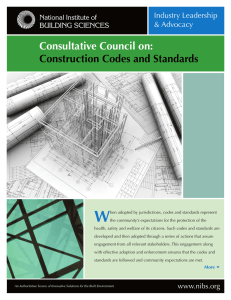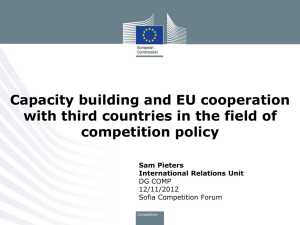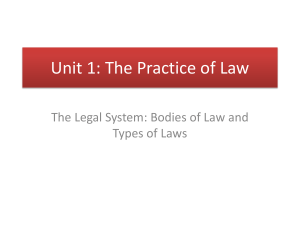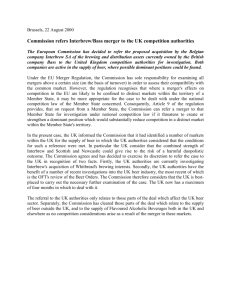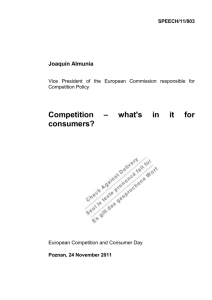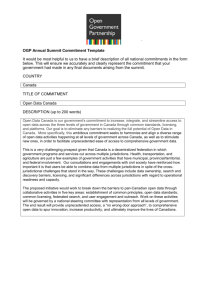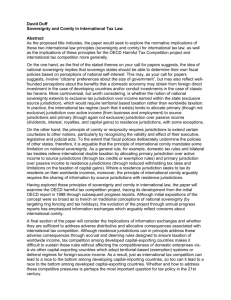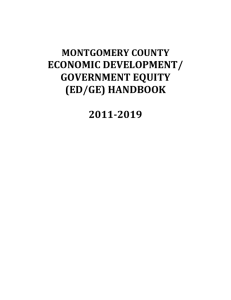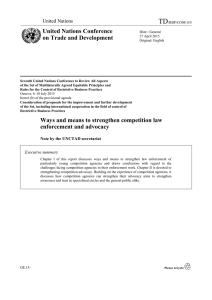Independence and institutional design of (smaller) NCAs in the
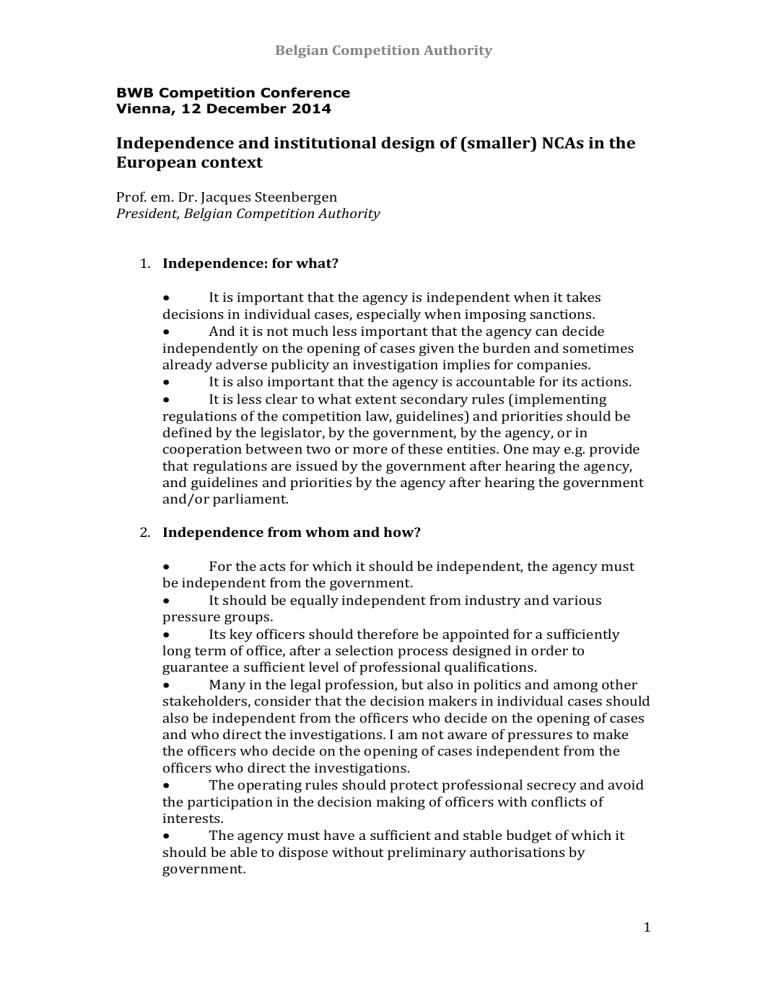
Belgian Competition Authority
BWB Competition Conference
Vienna, 12 December 2014
Independence and institutional design of (smaller) NCAs in the
European context
Prof. em. Dr. Jacques Steenbergen
President, Belgian Competition Authority
1.
Independence: for what?
It is important that the agency is independent when it takes decisions in individual cases, especially when imposing sanctions.
And it is not much less important that the agency can decide independently on the opening of cases given the burden and sometimes already adverse publicity an investigation implies for companies.
It is also important that the agency is accountable for its actions.
It is less clear to what extent secondary rules (implementing regulations of the competition law, guidelines) and priorities should be defined by the legislator, by the government, by the agency, or in cooperation between two or more of these entities. One may e.g. provide that regulations are issued by the government after hearing the agency, and guidelines and priorities by the agency after hearing the government and/or parliament.
2.
Independence from whom and how?
For the acts for which it should be independent, the agency must be independent from the government.
It should be equally independent from industry and various pressure groups.
Its key officers should therefore be appointed for a sufficiently long term of office, after a selection process designed in order to guarantee a sufficient level of professional qualifications.
Many in the legal profession, but also in politics and among other stakeholders, consider that the decision makers in individual cases should also be independent from the officers who decide on the opening of cases and who direct the investigations. I am not aware of pressures to make the officers who decide on the opening of cases independent from the officers who direct the investigations.
The operating rules should protect professional secrecy and avoid the participation in the decision making of officers with conflicts of interests.
The agency must have a sufficient and stable budget of which it should be able to dispose without preliminary authorisations by government.
1
Belgian Competition Authority
3.
Accountable to whom and how?
Transparent reporting (subject to the protection of business secrets of companies involved in procedures) is important for accountability. But the reporting should focus on priority setting, decisions and advocacy. It should not invite pressure on individual decision makers. Not all jurisdictions may e.g. be ready for the publication of dissenting opinions.
It often helps to present the annual report to a politically legitimated body (a standing committee of parliament, an official stakeholders' committee), to the 'competition' or legal community or the
(specialised) press.
It is more difficult to know whether an agency should also present its priorities for the next year and to whom: to the government, to parliament, to stakeholders in general? And to what extent should the agency take into account comments on the envisaged or proposed priorities without losing its independence?
4.
Other aspects of the agency's architecture
4.1
the design of the agency should take into account the specific needs of the jurisdiction
The optimal mix between the enforcement of a cartel prohibition, a prohibition of abuse of dominance and merger control depends on the characteristics of the local environment.
The design of the agency and the determination of its resources should take into account the assessment of a jurisdiction's needs in respect of the abovementioned mix - and vice versa. A mismatch of goals and resources is likely to be counterproductive.
We may assume that all jurisdictions need advocacy. Smaller authorities are in particular trapped by the de minimis paradox: SMEs are likely to be significant operators and advocacy can only work towards them if there are clearly defined “don’ts”. It was therefore very important to exclude hard core restrictions from the scope of the de minimis notice.
But small authorities are likely to lack the resources for a systemic enforcement in small cases and need to be very selective in the prioritisation of a few ‘exemplary’ cases.
More generally, especially the smaller authorities need the flexibility to select cases in order to achieve the balance referred to above between cartel, abuse and merger control cases, between enforcement and advocacy, between ‘negative’ and ‘positive’ decisions, etc. They should not have the obligation to deal with every case brought to them.
And they should dispose of sufficiently equipped toolkit to maximise the efficiency of their interventions: settlements, commitments, interim measures, etc.
Young and small authorities are likely to be dependent on leniency for competition law enforcement as much as their larger and more
2
Belgian Competition Authority established colleagues. But leniency can be very disruptive in smaller, less open communities without much of a competition culture. They need alternative sources of information at least as much as others. We find a good and very open cooperation with neighbouring authorities very valuable. National competition law should not only allow for leniency but also for such cooperation in accordance with ICN and other relevant standards.
Effective merger control with mandatory pre-notifications can be very resource intensive. It requires a careful tuning of notification thresholds and an efficient simplified procedure.
Especially small open economies should assess to what extent merger control deserves to be pursued if at the expense of anti-trust enforcement. And while small more closed economies may benefit more of merger control, they are also likely to find it very difficult to do.
4.2
the design of the agency should take into account the constitutional characteristics of the jurisdiction
In some jurisdictions the civil service is very independent and
(part of the) services of the agency may well be integrated in existing structures in order to reduce costs. In others it may be more important that agencies be totally outside the existing ministries. In yet others there may already be independent agencies and one can ask whether a total or partial merger of agencies should be envisaged.
In some jurisdictions the constitutional culture requires that only courts judge the behaviour of individual companies and impose sanctions.
In these jurisdictions it is logical to set up the competition agency as an investigating and prosecutorial authority, while others may not have the judicial infrastructure to be charged with the decision making in first instance.
5. Conclusion
There is no one-size-fits-all. The design of competition agencies requires a careful analysis of the characteristics, requirements and resources of a jurisdiction and its socio-economic environment.
3
